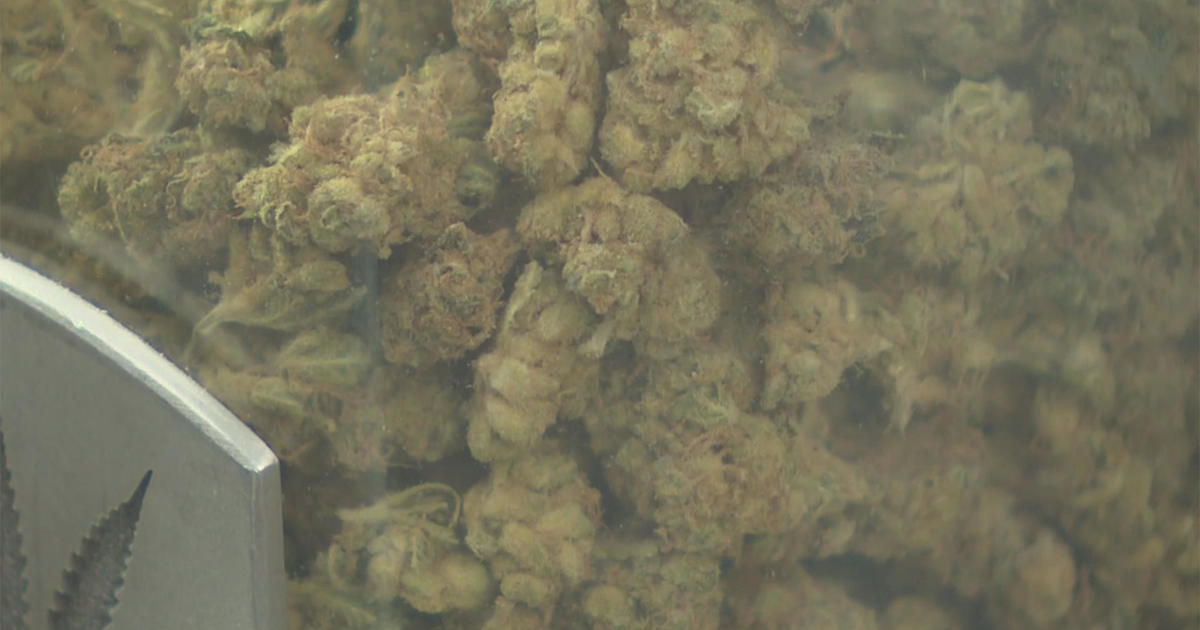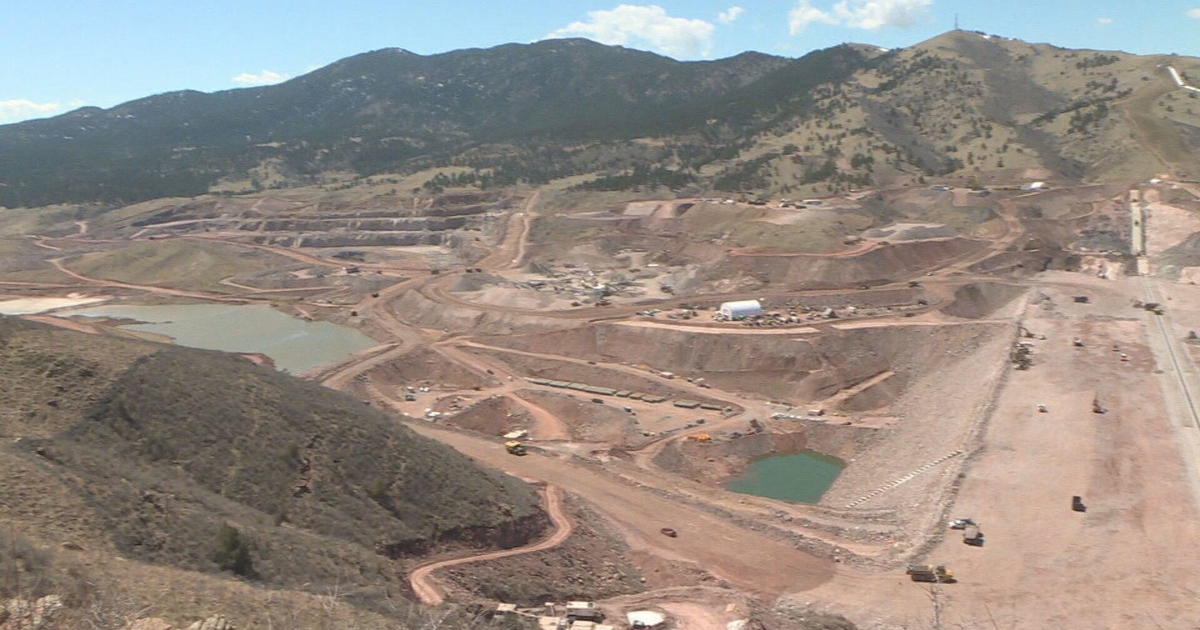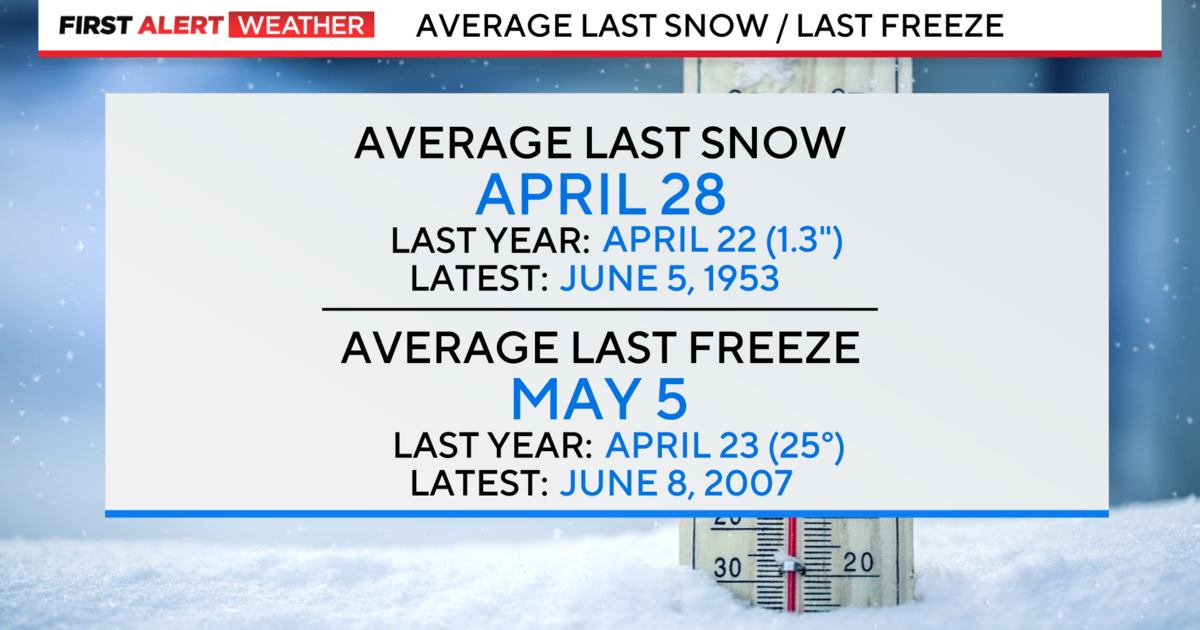Low Snowpack Has Ripple Effect On Paddling Season
DENVER (AP) - Canoe? Check. Paddle? Check. Life preserver? Check. Epic whitewater conditions? Maybe next year.
After a winter of historically low snowpack combined with an earlier-than-normal runoff, Colorado river guides and tourists are adjusting their spring and summer plans for what is turning out to be an early paddling season.
"We really live on snowpack. That's what it comes down to," said Richard Ferguson, a trip coordinator for The Poudre Paddlers Canoe and Kayak Club, which serves northern Colorado.
The whitewater canoeist said low river flows already have forced him to cancel one trip scheduled in July on the Yampa River in northwest Colorado. Another group outing that had been planned for Memorial Day had to be moved.
"A light snowpack means that the peak is very early," Ferguson said. "What happens is the season just disappears very quickly. What you have essentially is no water to paddle in."
Although he still plans to hit the rapids just about every other week for the time being, Ferguson predicts there won't be any paddling on northern Colorado's Poudre River by mid-summer.
"At some point you're scraping bottom and kind of beating up your boat," he said. "At some point it gets to where it's really not worth it anymore."
That point is not yet clear.
According to The Natural Resources Conservation Service, the statewide snowpack was 7 percent of average as of Thursday, with more than half of all snow survey locations in Colorado reporting no snow.
Mage Skordahl, the NRCS's assistant snow survey supervisor, said Colorado's snowpack peaked around March 12, a month ahead of average, and current conditions in the state match those recorded during the record-setting drought of 2002, one of the toughest years for river guides in the state.
It's a scenario that is playing out across a vast swath of the West this year, especially in the Colorado River Basin, which drains parts of seven states and is largely parched by severe drought this year, according to the National Integrated Drought Information System.
Alex Mickel, president of Mild to Wild Rafting and Jeep Trail Tours in Arizona, said his company tries to take advantage of the early runoff to run trips on the Verde and Salt rivers, but the amount of snowfall dictates how long the rafting season will run.
With more snowfall in eastern Arizona's White Mountains this past winter, the trips lasted longer than the previous year but still had to be cut short by about a week because of the low water levels.
"Anytime we make it into May, we consider it a success," Mickel said. "We're glad we got enough snow to do that. We'd certainly like to see more."
In New Mexico, drought continues its grip across the state to some degree, and water levels in reservoirs are low. Meanwhile, the Rio Grande, Chama and other rivers known for rafting aren't as high as in years past.
But with persisting dry conditions, rafting companies say they have learned to adapt to lower river levels over the last couple of years. And despite New Mexico's recent statewide drought declaration, some areas like Taos had decent snowfall over the winter.
In fact, northern New Mexico had the country's best early snow conditions, and because of that, some outdoor enthusiasts could steer toward the state rather than places like Colorado and Wyoming.
Still, some in Colorado think this season will turn out OK and are hoping potential rafters will not be deterred.
Jon Donaldson, co-owner of River Runners, a rafting guide company based in Buena Vista, said "we're going ahead full bore like there won't be an effect.
"The flows are part of the equation but not the main part of the equation," he said, adding that, although counterintuitive, this season could be better for business because of the weak snowpack and low river flows.
High water last season - especially in the Royal Gorge area near Canon City - closed parts of the popular Arkansas River because they were too dangerous to navigate. Donaldson predicts those same sections will remain open the entire season this year, which means the possibility of more trips - and more business.
Donaldson, who said business so far has been average despite the season beginning almost a month earlier than normal, also is banking on adventurer seekers from places like Texas, Oklahoma and Kansas.
"Some folks may stay home, but as far as it affecting tourists, we still have a really great trip," he said.
According to a new report by the economic research firm Southwick Associates, those tourists, as well as recreational activity in general along the Colorado River and its tributaries, contribute about $17 billion in direct spending per year.
The report was commissioned by Protect the Flows, which represents small businesses like fishing and rafting guides who rely on the Colorado River Basin in Arizona, California, Colorado, Nevada, New Mexico, Utah and Wyoming.
It estimates that business activity resulting from recreation focused on the river generates more than $1.6 billion in federal taxes annually and $1.6 billion in state and local tax revenues.
Whether that industry will remain robust in the face of what could be an off year is yet to be seen, and those with a stake in recreational businesses hope the lure of the water continues.
Although this season's low flows may keep hard core adventurers out of the water, Donaldson said "folks are still going to use their summer vacation."
Tourists are more focused on "the adventure for the day," he said.
- By THOMAS PEIPERT, Associated Press
Associated Press writers Catherine Tsai in Denver, Felicia Fonseca in Flagstaff, Ariz., and Susan Montoya Bryan in Albuquerque, N.M., contributed to this report.
(© Copyright 2012 The Associated Press. All Rights Reserved. This material may not be published, broadcast, rewritten or redistributed.)



